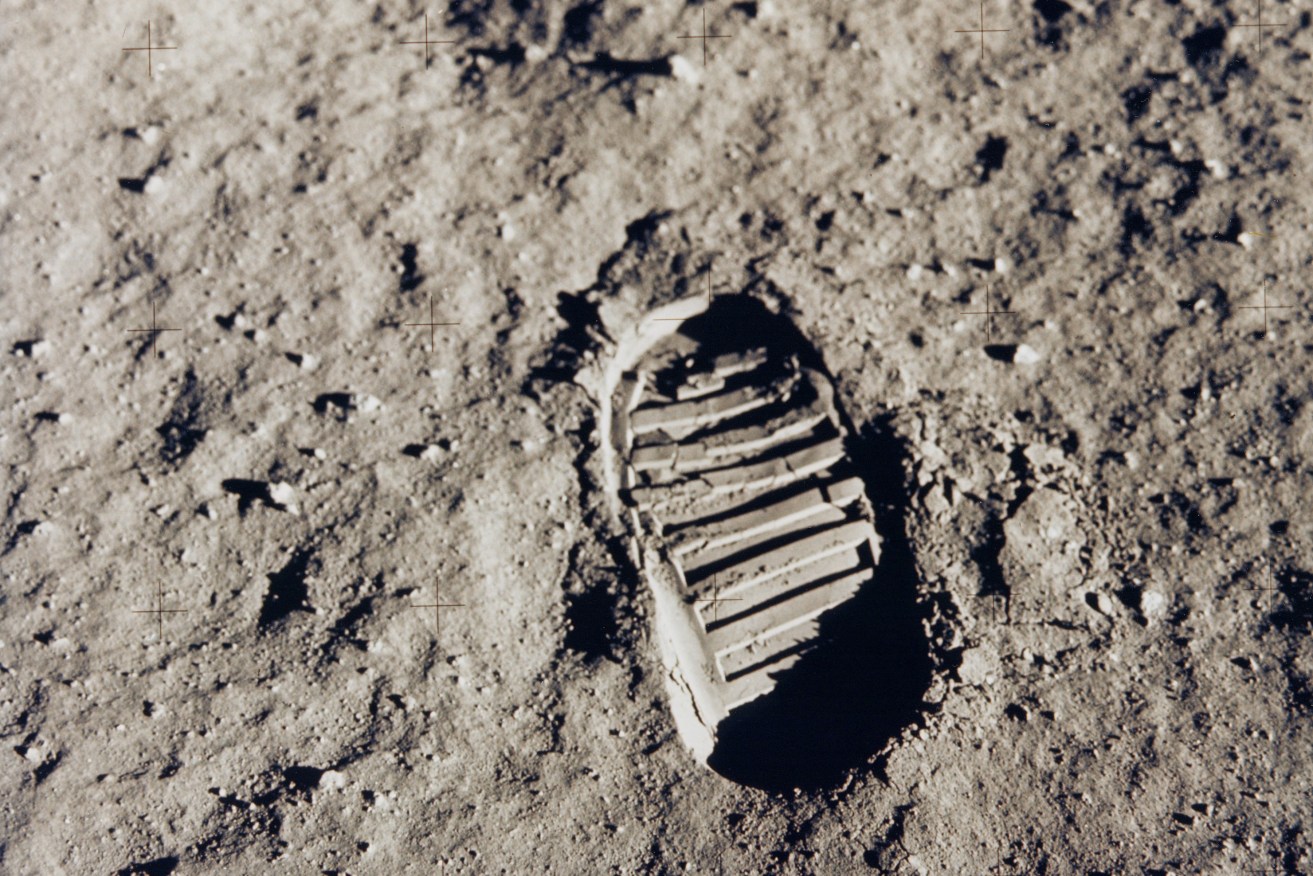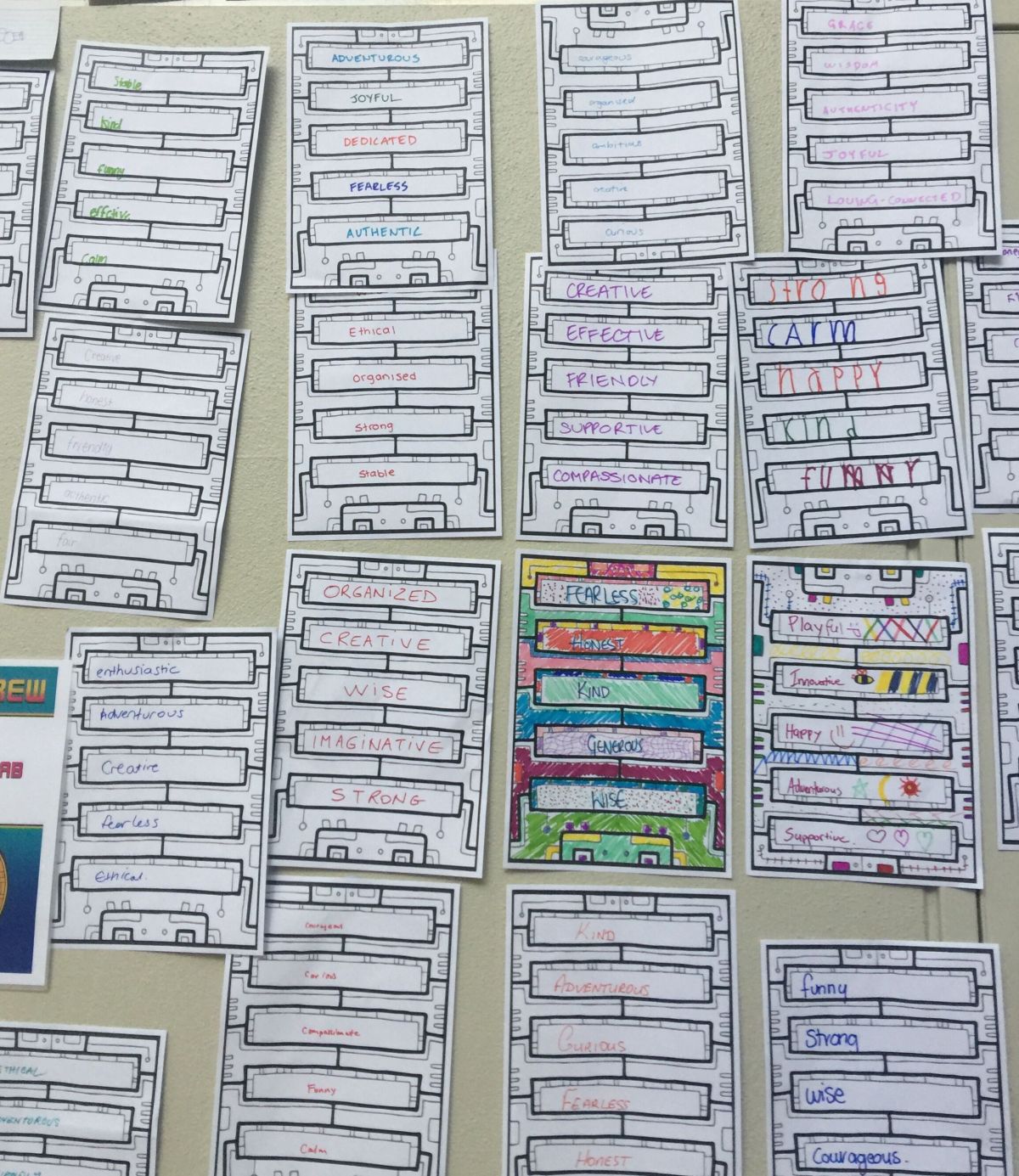Being human in the new space frontier
As humans reach out to space and Adelaide gears up as the home of the Australian Space Agency, it’s time to reflect on the the essential meanings of being and humanity in a new age of exploration, says Helen Connolly.


Photo: Buzz Aldrin/NASA
A child born on Saturday, July 20, 2019, is quite likely to be alive to see human life established on Mars before the start of the 22nd century.
Whether we believe this to be a good thing or not, we can all agree it will be an achievement on a scale as significant as humankind landing on the moon was on this day, 50 years ago.
Australia’s role in the lunar landing was significant, and any mission to Mars is likely to have Australian ingenuity in the mix, particularly given our history of technical successes over several decades across navigation and timing, Earth observations and satellite communications.
Our collective hope is that South Australia’s next generations will have opportunities to pursue space industry careers not yet thought of.
At the very least, they will benefit from the injection of technological and economic activity the space industry is likely to generate, offering Adelaide the potential to make a mark on the international space program map.
Recently I collaborated with Urban Mind on the first ever Being. In Space event held in the Bicentennial Conservatory of the Adelaide Botanic Gardens as part of this year’s SA Dream Big Children’s Festival.
At the ‘BiCon’ in the Botanic Gardens, we set-up a “biosphere” for visitors to explore, asking them to imagine they had just discovered a galaxy far away and that the BiCon was their eco-pod spaceship for the journey there.
Their mission: to develop their own personal astronaut training “design code”: to select words that guided them on how to “be” in space, which is about the values and virtues of the person you want to be, to get you through the uncertainty and unfamiliarity of new challenges and the unknown.
In these circumstances, the tasks are not as important as the attitude you bring to the task. It is about setting a personal design code for how you want to be, not what you want to do.
Over 550 visitors, the majority of which were children, explored the BiCon building’s biosphere over two days. They walked through the conservatory garden to find words hidden among the tropical plant collection choosing those that would best make up their own personal design code.
They chose words that echoed feedback I had received from other children and young people when I asked them what being in space means to them.
They spoke about the need to be courageous, kind and considerate in their approach, to be fearless and yet collaborative in their style. These are words that underpin positive human values.
They remind us of the importance of ensuring that whatever space industry we build here in Adelaide, that above all, it is the best aspects of our humanity that we must place at its core.
If we bring human values into the mix, then our aspiration to build a world class space industry here will have the best chance of being realised.
It may also be the kind of leadership that is required to inspire humankind to unite globally, and it could be our children and young people who do this.
Children and young people are excellent at reminding us of the things that really matter.
Although technology and the human advancement the space industry offers us through acquisition of enormous riches of knowledge of the universe, it is the contribution space science and technology makes to our wellbeing that is of utmost importance, and which ultimately determines the happiness of its citizens.

Some of the contributions from children to the Being. In Space project.
Exactly what unique contribution Adelaide and South Australians will make to Australia’s federal space agency initiative is still to be realised.
Perhaps it’s not too far a leap to suggest that future generations of South Australian’s could play a vital role in devising a space age constitution that will embed the best aspects of what it means to be truly human at the centre of all that we will eventually do in space.
Let’s make the measure of the success of having this prestigious agency in Adelaide the extent to which we engage our children and young people in laying foundations for their economic, technological and cultural future, to ensure new human settlements place the best aspects of our humanity at the centre of our space endeavours.
In this way we may be able to change the course of human history forever. JFK’s inspirational speech, made in 1962 at the start of America’s ambitious decade-long space program, made the point that the country decided to go to the moon and do other things “not because they are easy, but because they are hard…”
These words ring true now too, with little doubt that sustaining human life on Mars – whatever that looks like – will be a game-changer for all who live to see it.
Helen Connolly is the inaugural South Australian Commissioner for Children and Young People, responsible for promoting and advocating for the rights, interests and wellbeing of children and young people across South Australia.
Want to comment?
Send us an email, making it clear which story you’re commenting on and including your full name (required for publication) and phone number (only for verification purposes). Please put “Reader views” in the subject.
We’ll publish the best comments in a regular “Reader Views” post. Your comments can be brief, or we can accept up to 350 words, or thereabouts.
InDaily has changed the way we receive comments. Go here for an explanation.




